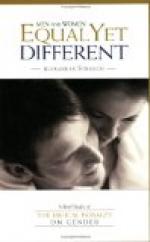Even in old age, she still watched carefully over the interests of her son. During the Winter of 1777-1778, when the American soldiers were in such extremity at Valley Forge, she, as well as the wife of Washington, spent her time in preparing comfortable clothing for them. Her spinning-wheel and knitting-needles were rarely idle in those times of trial. A woman of proper discernment and good judgment, it is scarcely necessary to say that she disapproved of extravagance of every kind; and when the necessities of her country demanded the sacrifice of every thing not an absolute necessity, she was found foremost in setting an example of plainness of dress.
Lafayette, with his aids-de-camp, paid her a visit of congratulation on the occasion of Washington’s successful passage of the Delaware, and found her dressed for their reception in a plain printed gown, with her knitting—probably a stocking for some needy soldier—lying on a table near her. Did the noble Frenchman and his companions deem their reception to have been less cordial than they would have thought it had she arrayed herself in costly satin and lace, and received them in idle state? Lafayette’s own testimony of his appreciation of her remarkable worth answers for itself.
At a good old age she died, and her country still reveres her memory.
MRS. WESLEY.
Taylor, the historian, gives Mrs. Wesley quite a prominent position in his account of the work accomplished by her sons, and gives the following reason for doing so: “The mother of the Wesleys was the mother of Methodism.” One who was so intimately connected with the leaders of the Reformation of the eighteenth century deserves a prominent position among the eminent women of modern history.




